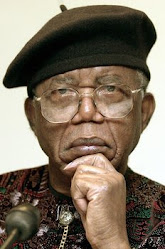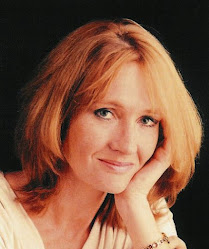
Helon Habila is a familiar name among book readers home and abroad. Extracts from his collection of short stories, Prison Stories, were published in Nigeria in 2000. His full novel, Waiting for an Angel was published in 2002 and it won him the Commonwealth Writers Prize for Best First Book in the Africa Region. It has been translated into many languages including Dutch, Italian, Swedish and French.
His second book, Measuring Time, published in 2007, is a tale of twin boys, Mamo and LaMamo pushed out into the world with their mother’s last breath in a tiny village in North eastern Nigeria. LaMamo is healthy, extroverted and bold. He’s the one who stands up to their father, the one their distant father gives attention. Mamo, the elder twin, has to stay indoors and away from strenuous activities because he’s sick a lot of the time.
Mamo brings up the idea of their becoming famous. It’s the second commandment in his mental diary – “CHEAT DEATH, BE FAMOUS”. It’s the only way for him to “live on” when his body loses its battle against the sickle-cell illness he has. When their long forgotten uncle, Haruna, assumed dead in the Biafran war, returns and is celebrated and talked about by the whole village, they decide to run away with their cousin to the state capital to join army recruits. Mamo falls violently ill just as they are about to cross the river on the last lap of their escape. Instead of letting this ruin their plans, he selflessly tells them to go on without him. Alone in the dreary village, Mamo tries to find ways to occupy his mind while he takes pleasure in concealing his brother's whereabouts from their father. Later he gets an offer from the state university and leaves the village to spend two years at the state university studying history. Unfortunately, his illness prevents him from taking his final exam and he returns to Keti without a degree.
Grounded in the village by his illness, and watching with disquiet as his father dabbles in local politics, he accepts a teaching position at his uncle's school. Zara, a girl he was infatuated with as a teen, returns to Keti. Now she’s a bitter woman, bruised inside and out by her military husband, who has also forcefully takes custody of their child. She takes up a teaching post at his uncle’s school and they begin a strained relationship. When the school is closed and Zara travels, Mamo’s days seem twice as long. During his wait for something, anything to happen to take his mind away from the mundane, he measures time in the shadow cast by trees and walls, in the silence between one footfall and the next, between one breath and the next, in the seconds and minutes and hours and days and weeks and months that add up to form seasons.
He stumbles upon a book on Keti’s history, written by a foreign missionary, while in Zara’s house. She encourages him to review it, and then she sends it to a professor at her alma mater. It’s published in a Ugandan journal and slowly word of it gets round the village. Keti’s most flamboyant pastor puts it on his churchs notice board and even weaves it into his Sunday sermon. His uncle puts it on the school notice board for all to see. Suddenly everyone is talking about him, shaking his hand and thanking him for putting their village on the map. The Mai (local chief) contracts him to write his biography in time for his tenth year coronation anniversary; he is invited to address the local youths,to incite them to positive action; now he's rubbing shoulders with the high and mighty in exclusive social circles. Mamo becomes famous. Later on, things take an ugly turn. The research he’s doing for the Mai’s biography is unearthing a lot of dirt that will smear the Mai’s name; his father is planning to rig the local election and his aunt is held in custody to arm twist him into doing something against his principles.
LaMamo however has to die to become “famous”. He returns home one-eyed and lean to meet a home and a beloved village in disarray. Angry that his people are suffering from bad governance, he incites them to fight for their liberation. He gathers an angry mob and leads them to the Mai’s palace. They raze it down, kill the scheming Waziri but spare the Mai. LaMamo dies in his house from bullet wounds and Mamo continues alone.
In this book, Habila commands attention from the first page. Measuring Time is a remarkable story told compellingly and cleverly. The tone is confident and the prose is non-fat. Habila is a talented storyteller.
[Image via Ugandian Insomniac]



















Nice story.you're having fun with all these books.but watch the typographical errors.i counted about 3 of them.
ReplyDeleteLet me re-read the piece. Thank you
ReplyDeleteHow was his first book? I have just bought a copy but haven't read it yet?
ReplyDelete@ Bookaholic
ReplyDeleteI haven't read it yet, but from what i've read online it sounds like Habila did a really good job. I plan to get it really soon.
This is the other half of Bookaholic...I have read his books. Measuring Time is a good book no doubt but sometimes, it just does not feel whole but as piecemeals, with each chapter having the power to stand on its own as a short story. At some point it reads as if the writer is indeed consciously measuring time, cos the pace just slows down then picks up again...it was a nice read regardless. Insights into not only the world of twins but history, Nigerian and world. Having read Waiting for an Angel, I understood better!
ReplyDeleteI liked Waiting for an Angel, but I never liked Measuring Time. I couldn't pass the first chapter. Sorry.
ReplyDelete@Onyeka
ReplyDeleteYeah it happens. A lot of people believe The Opposite House was really good...but clearly I don't think so.
No wahala
A nice synopsis, but you don't say much about the novel as a novel-- no real critical perspective or view on the technique of Habila.
ReplyDeleteThe story sounds interesting.
ReplyDelete@ Today's ranting
ReplyDeleteIt is interesting. Helon is good.
I actually liked Measuring Time. The build up was slow but when I got into it, I couldn't put it down. Same goes for Waiting for Angel.
ReplyDeleteI think Habila's writing is the type that requires patient. The word/actions don't jump right at you from the first page. To be honest, most of favorite books did not start off with a bang but they had a huge impact on me. I heard he is writing his third novel...I can't wait.
This comment has been removed by the author.
ReplyDelete@ Moody Crab
ReplyDeleteI'm hoping to read Waiting for an Angel soon. Measuring Time is really good. As for the third novel rumoured to be in the works...I hope it's better than the first two.
Thanks for stopping by.